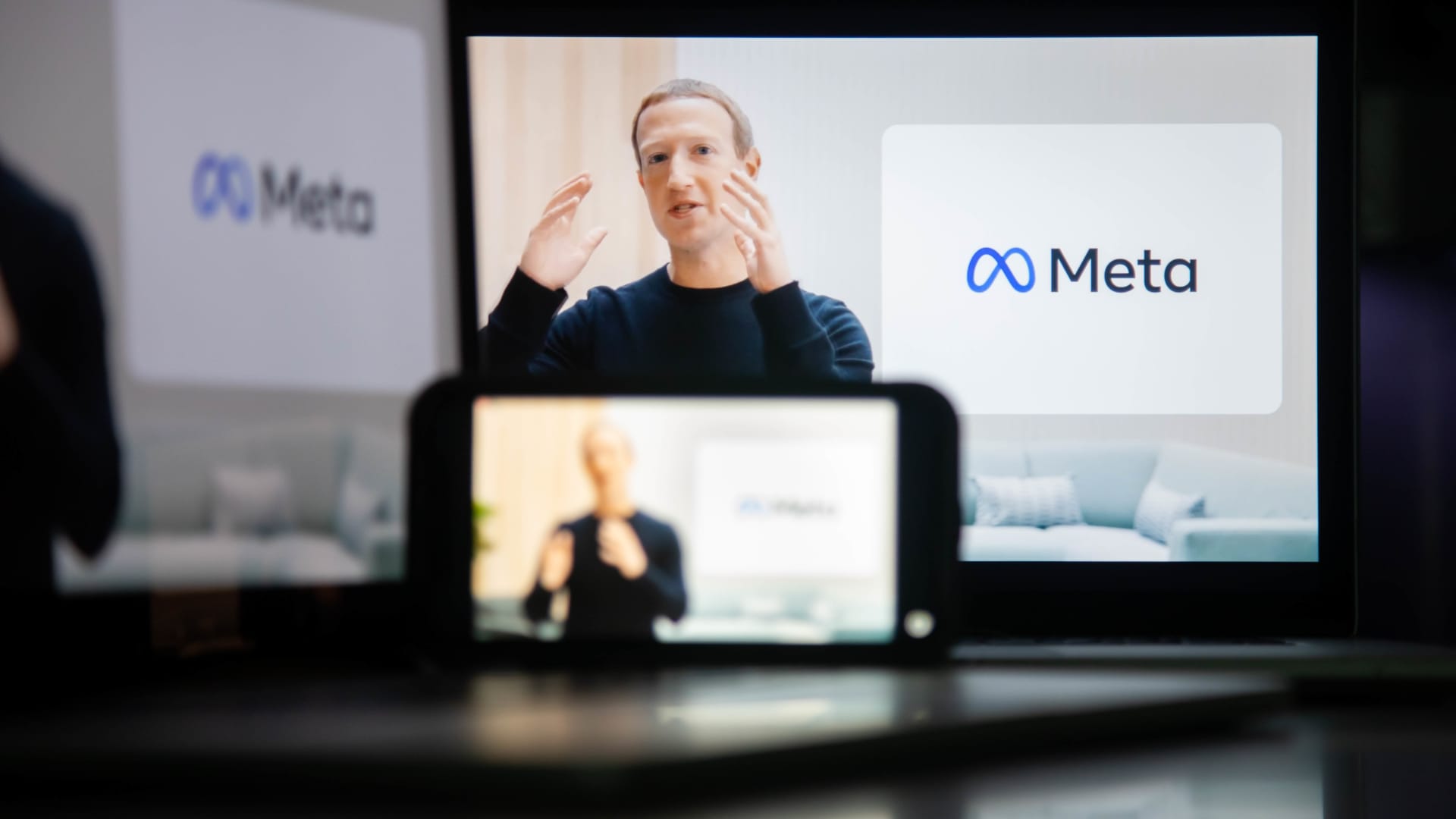Meta nudges its big VR push another step away from the Facebook legacy


Meta is introducing a new way for people to log in to virtual reality headsets without using their Facebook credentials, the company’s latest effort to separate its futuristic metaverse ambitions from its core social media business.
Mark Zuckerberg, CEO of the company now known as Meta, announced in a Facebook post on Thursday that Meta accounts will debut in August. Users will be able to access their Meta Quest VR headsets with their new accounts and to see a history of their VR app purchases.
While Meta still gets substantially all of its revenue from its Facebook family of apps, Zuckerberg is trying to convince investors and a certain subset of customers that the business is headed in a different direction as the metaverse evolves.
Zuckerberg’s vision of the metaverse involves an assortment of virtual worlds that can be accessed by VR and augmented reality technologies. Although VR and AR headsets are still niche devices in a world dominated by smartphones, the Facebook founder has indicated they represent the future of computing and he recently said he envisions 1 billion users spending hundreds of dollars each in the metaverse by the second half of the decade.
The story looks wildly different today, however. Reality Labs, Meta’s division responsible for developing the metaverse and its underlying technologies, posted a $10 billion loss in 2021.
Meta also is trying to make amends with its current customer base of Quest VR users after the company previously required them to use their Facebook accounts to access headsets. The backlash resulted in Meta announcing in October that it would change course.
“When we announced that we would start requiring people to log into Meta Quest using a Facebook account, we received a lot of feedback from the Quest community,” the company said in a separate Thursday blog post. “We took that feedback into account as we designed a new Meta account structure that gives people flexibility and control.”
Along with abandoning the need to use Facebook credentials, Meta is making a marketing change to further showcase the brand. Rather than users having Oculus profiles, they will now have Meta Horizon profiles. Facebook inherited the name when it acquired Oculus in 2014 as an entry into the VR market. Now people will be able to use their Meta Horizon profiles to customize their VR usernames, virtual avatars and other information, the company said.
A Meta spokesperson told CNBC that users will need both a Meta account and a Meta Horizon profile to access the company’s VR headsets.
The blog post also noted that Quest VR users will have “followers” instead of “friends,” making the Quest nomenclature more akin to Instagram.
“If you already own a Meta VR headset, your Oculus friends will automatically become your followers and you’ll follow them back by default,” the post detailed. “You can choose to unfollow anyone or remove followers at any time.”
Meta also is releasing new tools to let users manage their privacy settings in VR, allowing them to choose whether they want their Meta Horizon profiles to be open to everyone, only to friends and family or to be kept private.
If users don’t select a privacy setting, they will be set to friends and family by default, a spokesperson said. Current Quest VR users will need to select a privacy setting in order to continue using their headsets.
WATCH: What is the metaverse and why are billions of dollars being spent on it?
This post has been syndicated from a third-party source. View the original article here.




